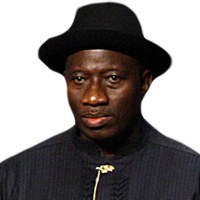A year ago, as Boko Haram, the violent jihadist group from Nigeria’s north, expanded its operations, I argued that even though the Nigerian government had launched what seemed to be a serious military offensive, it continued to reject the sort of deep and serious reform needed to undercut support for extremism. Hence the United States should avoid offering anything other than modest, indirect help.
Since then, Nigeria’s security situation has eroded further. In the words of Navi Pillay, the U.N. high commissioner for human rights, Boko Haram has become “increasingly monstrous.” Approximately 500,000 Nigerians have fled the fighting between government security forces and the terrorists, some to other parts of Nigeria, others to neighboring nations. Bolstered by weapons spilling out of Libya, Boko Haram has killed 5,000 of its fellow citizens and claimed responsibility for at least two bombings in Abuja, the national capital. In early May, it kidnapped 200 girls from a boarding school in Chibok, a town in Nigeria’s Borno state. Abubakar Shekau, the movement’s leader, has threatened to sell the girls—an act so extreme that even other jihadists were appalled.
Tragically, Nigeria may not have hit bottom. Boko Haram might expand its operations, perhaps to Lagos, Nigeria’s largest city, or to the petroleum-producing areas in the south. The government’s inability to stop jihadist terrorism could inflame Nigeria’s already tense religious situation and ignite a broader Christian-Muslim war that would pale the one raging in the Central African Republic. The Movement for the Emancipation of the Niger Delta, Nigeria’s other major insurgency, has already declared a war on Boko Haram as part of “a crusade to save Christianity in Nigeria from annihilation.” It might back this up with action. Such an expansion of the conflict could cause the collapse of regional states or Nigeria itself.

